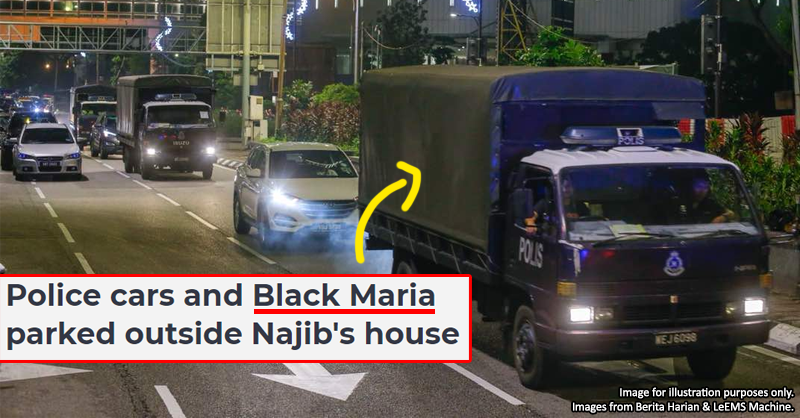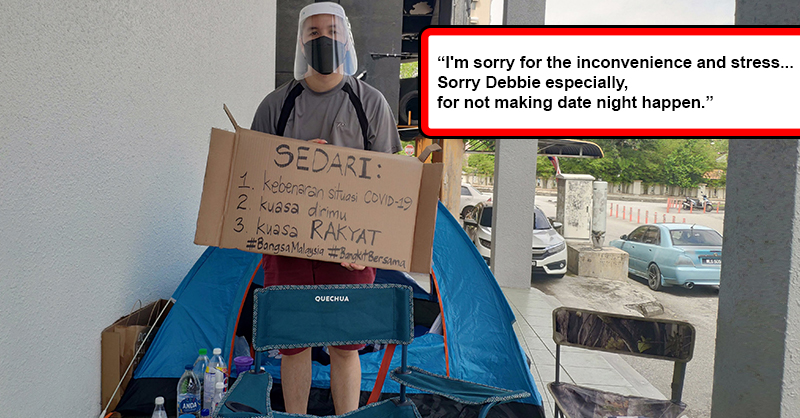Eh. Why is there a protest on Labour Day every year in Malaysia?
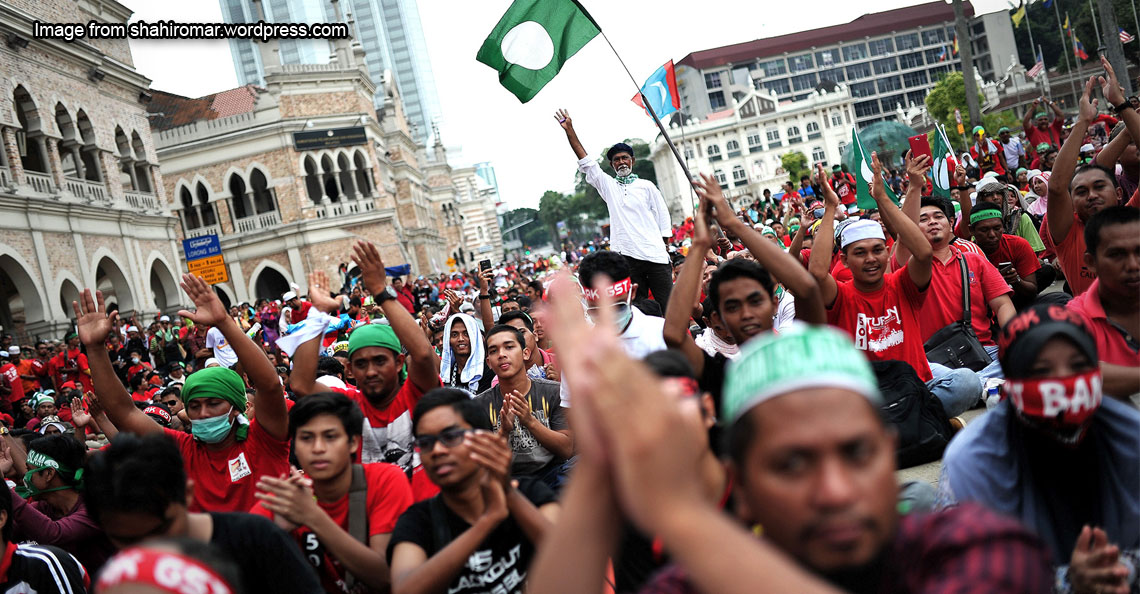
- 459Shares
- Facebook396
- Twitter7
- LinkedIn8
- Email21
- WhatsApp27
Oh hey you guys, it’s Labour Day today! It’s a day the world celebrates workers, gives them 10 year bonuses, all day office buffet, and free massages. Or so you’d wish, but hey, a pencil pusher can dream.
But yeah, it’s an annual holiday, celebrated in most countries around the world, in honour of the economic and social achievements of workers. What a long way we’ve come, from the birth of labour unions in the 1800s and campaigning for better conditions, specifically the 8-hour day movement (where workers advocated 8 hours for work, 8 hours for recreation, and 8 hours for rest).
Usually in Malaysia, workers in all states get a public holiday on the 1st of May, though we don’t think much about the history of these things. We do however, notice something happens on Labour Day aka May Day almost every year, sort of like a recurring theme…
Every year sure got protest on Labour Day
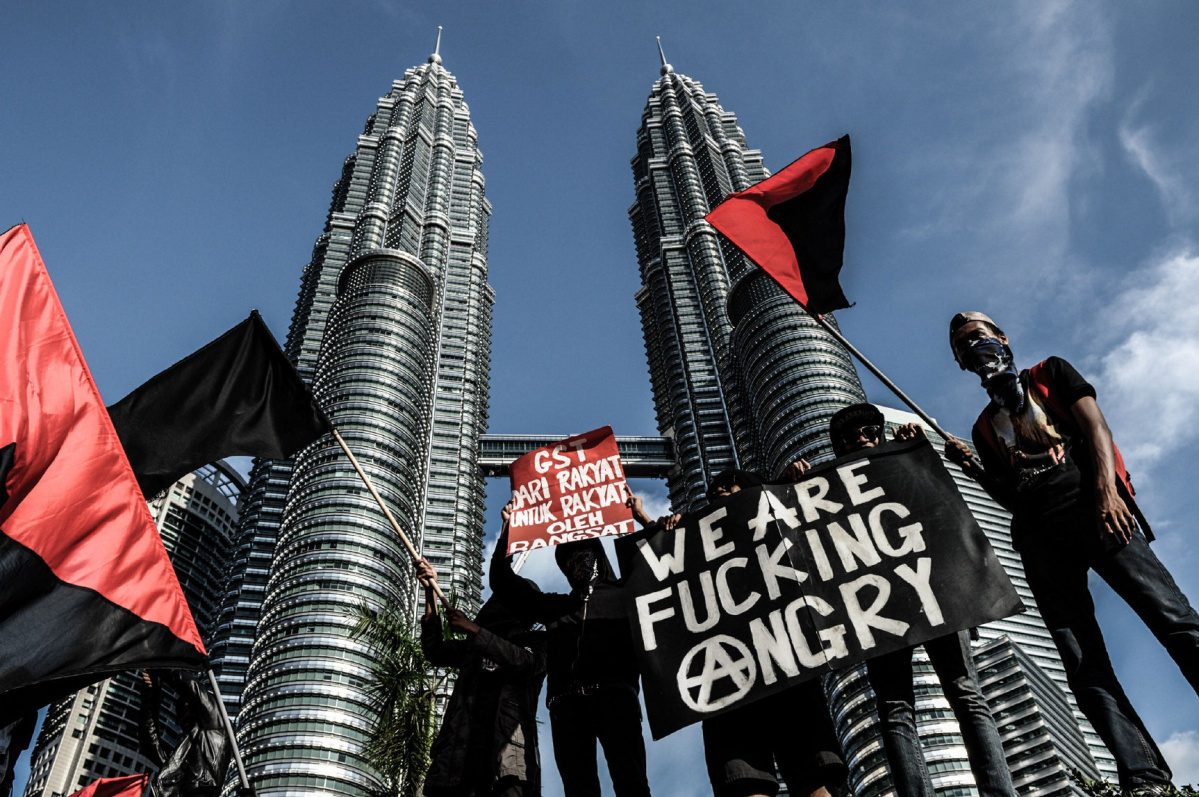
Labour Day has long been a focal point for demonstrations and in Malaysia it’s the same. Every year there will be a protest of some sort, whether big or small, and on whatever things the rakyat are unhappy with – it can be about better working conditions, minimum wage, cost of living, even GST.
This tradition of annual May Day protests began in 1994 when the May Day Committee was formed. It included the Oppressed People’s Network (JERIT); Suara Rakyat Malaysia (Suaram); Malaysian Youth & Student Democratic Movement; Saya Anak Bangsa Malaysia and the Socialist Party of Malaysia (PSM). Let’s look at our history of May Day protests, counting backwards from 2017 to 2010:
2017
The May Day protest began with only 100 people rallying near the National Mosque to demand a workers’ retrenchment fund, then swelled to 300 people by afternoon. These guys were farmers, factory workers and indigenous groups, a bunch of Otai Reformasi flers calling for the release of Anwar, LGBT activists came, waving rainbow flags, one former 5-star hotel staff of 20 years who was there to stand up for the rights of his 80 colleagues who got terminated.
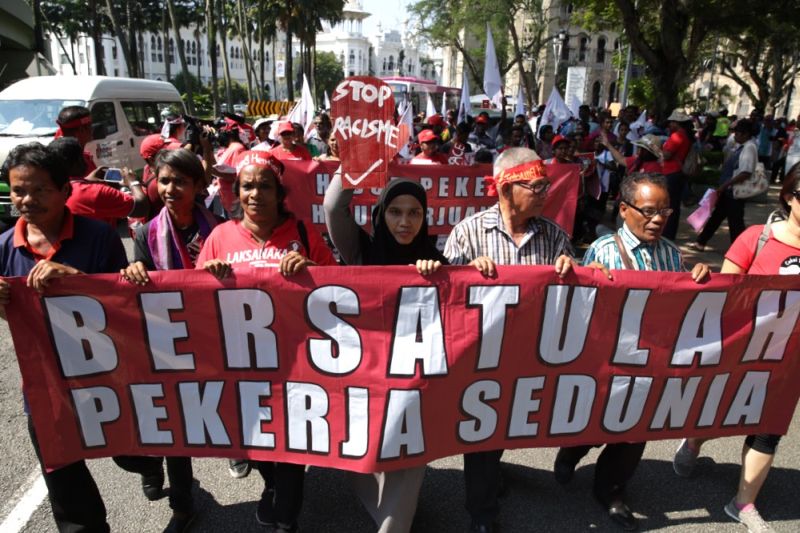
2016
This year’s protest was all about calling for minimum wage to be increased from RM900 to RM1,500. Wahh, in 2016, can anyone seriously still survive on RM900? Hundreds of protesters marched in the peaceful rally to highlight high cost of living, GST and freedom of the press too. Later in June, the Government bumped up minimum wage to RM1,000 in the Peninsular and RM920 in Sabah and Sarawak.
2015
GST was the theme for May Day’s protest that year. Despite trying to push for GST to be accepted with this cringey video, the rakyat was having none of that, so to the streets they went. In the aftermath of the protest, like literally the next day, 2 May, the cops rounded up more than two dozen protesters including Ambiga and opposition lawmakers.
2014
Same as 2015, this year was anti-GST year. With thousands gathering at Dataran Merdeka in red t-shirts, marching towards Sogo, it was a sight to behold. Just watch the video. Couple of days before the event, PSM committee member S. Arutchelvan threwback to a May Day protest in 2003 when US Secretary Condoleezza Rice visited.
2013
We interrupt this programme to bring you GE13.
2012
600 workers marched in protest against the Government’s newly announced minimum wage policy. Najib had announced on TV the night before that workers from the private sector would get RM900 in the Peninsular and RM800 in Sabah and Sarawak. The problem was the amount was still very low and could barely support families, especially in urban areas. Even this far back they had been calling for minimum wage to be set at RM1,500.
2011
This protest is quite historic because before 2012, Malaysia did not have a minimum wage law. On May Day, several hundred protesters held placards at a rally in KL to call for minimum wage to be implemented.
2010
More than 1,000 people took part in the May Day rally organised by the Malaysian Trades Union Congress (MTUC) and the May Day Committee. Shouts of “Bantah GST”, “Hidup pekerja” and “Hari Pekerja, hari kami” can heard as far as a mile away, reverberating along the bustling KL streets.
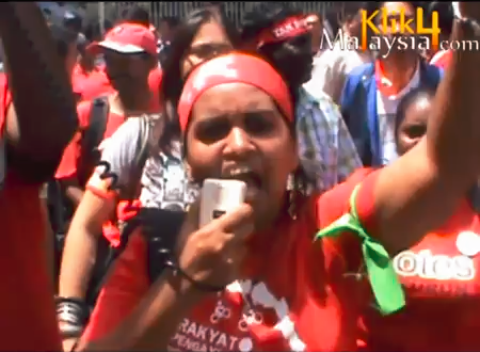
All around world protests by socialist, human rights activists and anarchist groups on Labour Day are the norm, due to austerity measures, poor working conditions, tax hikes, low wages and unemployment.
In Turkey, about 200,000 workers gathered in Istanbul’s Taksim Square in the largest May Day rally there since 1977. In South Korea, police said 50,000 rallied in Seoul for better labour laws. They also urged the government to contain rising inflation, which is a growing concern across much of Asia, coz food and oil prices have been spiking and threatening to push millions into poverty. Thousands of workers also marched in Taiwan, Hong Kong and the Philippines to vent their anger over the rising cost of living and growing disparities between the rich and poor.
So Malaysia is also no different, that’s why every year since 1994 we’ve had rallies every May Day. Interesting right?
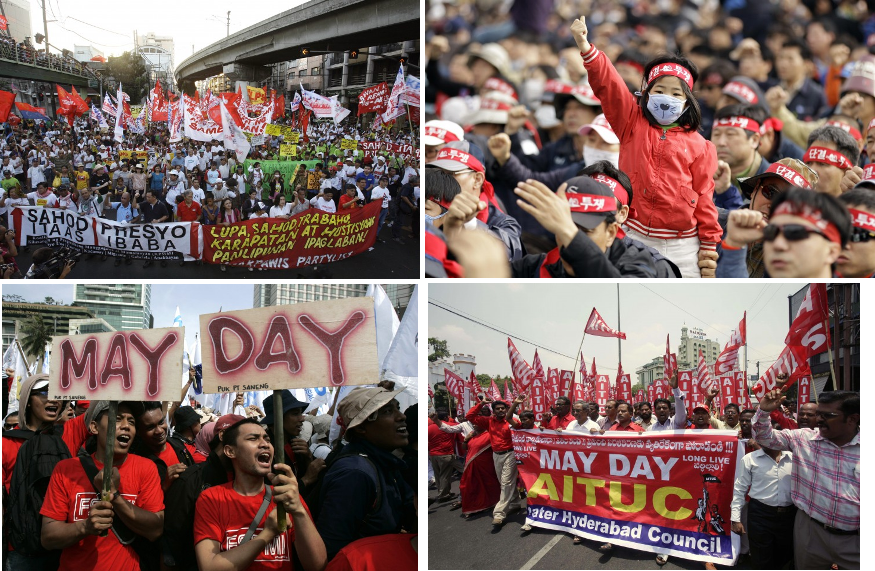
Labour Day was first celebrated in Malaysia in 1972
To most of the world, May Day dates back to 1886, when some 200,000 US workers engineered a nationwide strike for an 8-hour workday. It became known as the Haymarket affair.
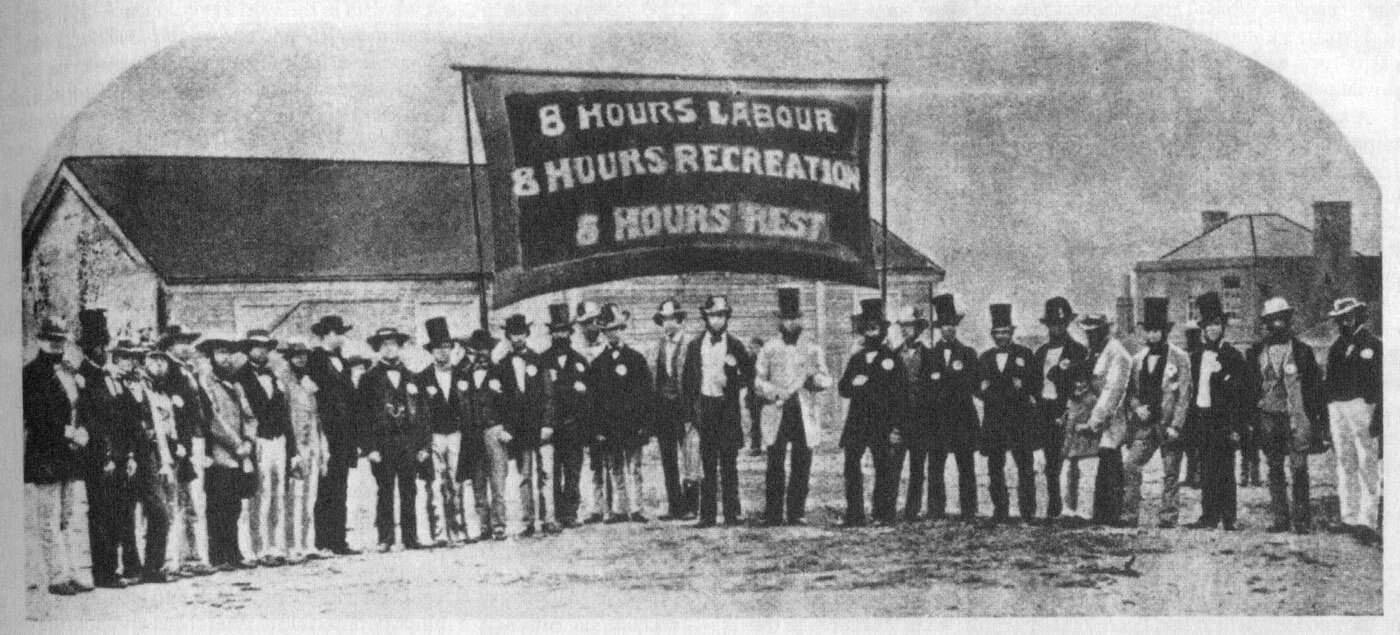
But in Malaysia, Labour Day celebrations began when former DPM, the late Tun Dr. Ismail Abdul Rahman announced 1 May as a public holiday for workers on 20 May 1972. Yep, the same guy that TTDI is named after, the country’s very first United Nations representative.
Dr. Ismail stated that the decision was made with the hope that the labour movement would perceive 1 May as a day dedicated to workers, which befit the national aspirations. It was a historic event because it not only recognises the contribution of workers, but shows that Malaysia is in agreement with the decisions of the UN’s International Labour Organisation (ILO) Convention. That same year, Labour Day was officially incorporated into the Holidays Act 1951.
Our tokoh-tokoh like A. Ragunathan, A.H. Ponniah, Datuk Nordin Abdul Hamid, T. Narendran, Datuk Jamaluddin Isa, Yahya Mohd Ali and A. Rajaguru are remembered for their struggles to secure workers rights in the early days. Among their achievements were general pay and services improvement for the civil service, including the establishment of a monthly pay system for railway workers, housing loans, and disability and dependent pension benefits.
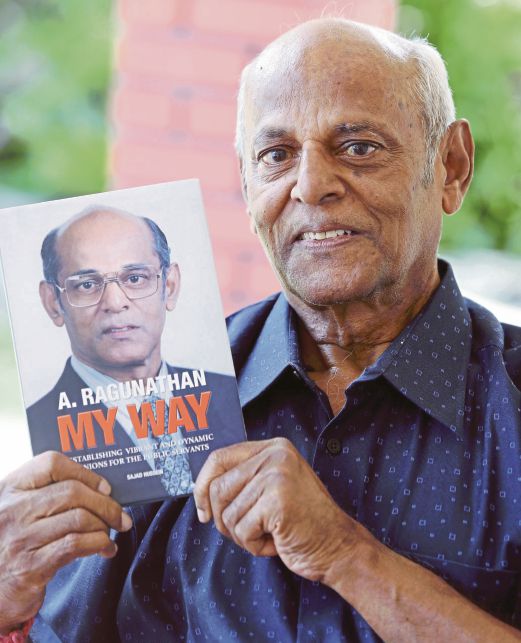
Ragunathan, the former President of the Congress of Unions of Employees in the Public and Civil Services (Cuepacs), also successfully lobbied for the organisation to be made the national centre for the public and civil services, which allowed a Cuepacs nominee to be sent to the annual ILO conference in Geneva. Cuepacs and the Malaysian Trades Union Congress (MTUC) are among the 591 unions in Malaysia that help formulate labour policies that the Government then turns into law.
Sadly, the union movement seems to be weakening, with the number of members steadily decreasing. Only 875,193 or 6% of the 14.5 million workers in the country are currently in unions. Our labour laws reportedly fall short of international standards, that’s why it’s so important to remember the glory days of our worker tokohs and carry on advocating the rights of workers.
“This is a very important day. Not just for holiday, rest and picnics. We ought to remember the struggles of workers back then. What we have achieved today is the result of what they have fought for. Without their struggles, we might still be getting salaries by the day, in cash, work more than 8 hours a day, we might have no chance of promotion, no housing allowance, no cost-of-living allowance and so on,” – Omar Osman, former President of Cuepacs, Kosmo
- 459Shares
- Facebook396
- Twitter7
- LinkedIn8
- Email21
- WhatsApp27




